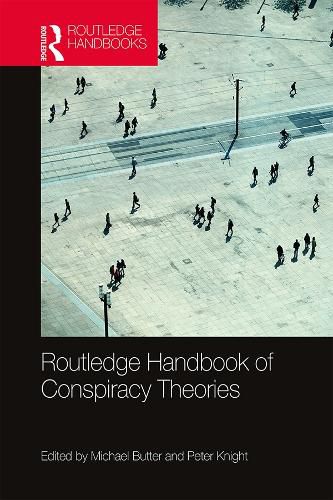Readings Newsletter
Become a Readings Member to make your shopping experience even easier.
Sign in or sign up for free!
You’re not far away from qualifying for FREE standard shipping within Australia
You’ve qualified for FREE standard shipping within Australia
The cart is loading…






Taking a global and interdisciplinary approach, the Routledge Handbook of Conspiracy Theories provides a comprehensive overview of conspiracy theories as an important social, cultural and political phenomenon in contemporary life.
This handbook provides the most complete analysis of the phenomenon to date. It analyses conspiracy theories from a variety of perspectives, using both qualitative and quantitative methods. It maps out the key debates, and includes chapters on the historical origins of conspiracy theories, as well as their political significance in a broad range of countries and regions. Other chapters consider the psychology and the sociology of conspiracy beliefs, in addition to their changing cultural forms, functions and modes of transmission. This handbook examines where conspiracy theories come from, who believes in them and what their consequences are.
This book presents an important resource for students and scholars from a range of disciplines interested in the societal and political impact of conspiracy theories, including Area Studies, Anthropology, History, Media and Cultural Studies, Political Science, Psychology and Sociology.
$9.00 standard shipping within Australia
FREE standard shipping within Australia for orders over $100.00
Express & International shipping calculated at checkout
Taking a global and interdisciplinary approach, the Routledge Handbook of Conspiracy Theories provides a comprehensive overview of conspiracy theories as an important social, cultural and political phenomenon in contemporary life.
This handbook provides the most complete analysis of the phenomenon to date. It analyses conspiracy theories from a variety of perspectives, using both qualitative and quantitative methods. It maps out the key debates, and includes chapters on the historical origins of conspiracy theories, as well as their political significance in a broad range of countries and regions. Other chapters consider the psychology and the sociology of conspiracy beliefs, in addition to their changing cultural forms, functions and modes of transmission. This handbook examines where conspiracy theories come from, who believes in them and what their consequences are.
This book presents an important resource for students and scholars from a range of disciplines interested in the societal and political impact of conspiracy theories, including Area Studies, Anthropology, History, Media and Cultural Studies, Political Science, Psychology and Sociology.